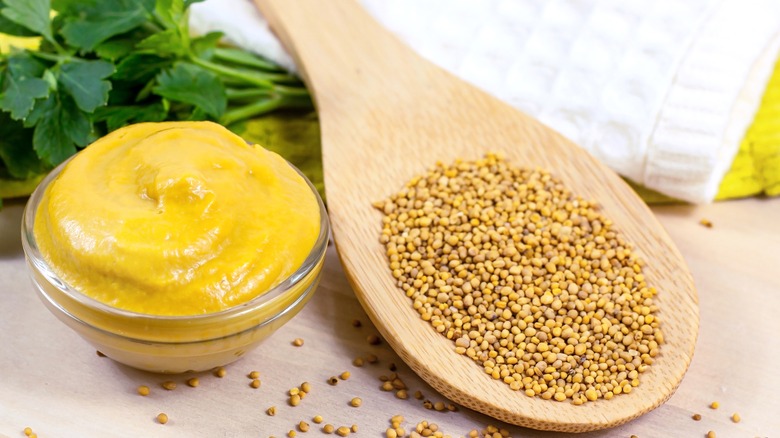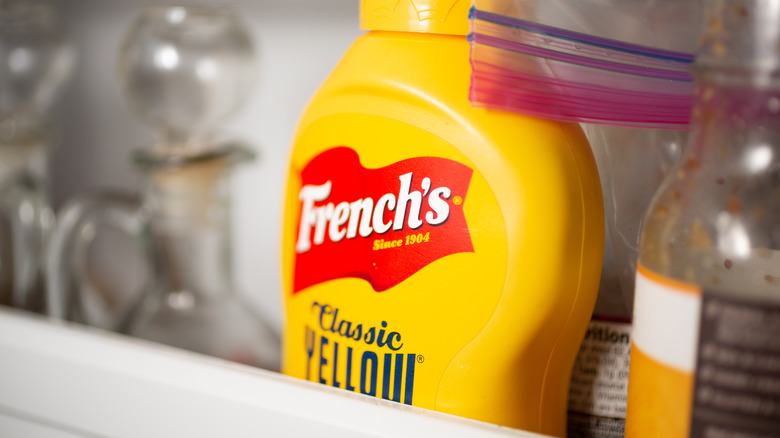Does Mustard Never Really Expire?
The merits of mustard are undeniable: The punchy condiment made from ground seeds of an herb that has been around since about 3,000 BC comes in a variety of forms that can be used in a multitude of ways, from adding a spicy kick to a hot dog or a honey-sweet glaze to roasted brussels sprouts.
Mustard is a versatile vehicle of flavors. It can be spicy, sweet, or acidic (like in the classic French Dijon mustard). It can be filled with seeds for a bit of texture or smooth. The palate of colors mustard comes in ranges from grey-yellow to golden to brownish yellow. However, even the greatest of condiments can fall victim to being forgotten in the chaos of an unorganized refrigerator, and mustard is no exception. Do note: Dijon and horseradish-based mustards should be refrigerated while other kinds of mustard are fine to be kept at room temperature. Whether you stumble upon a jar or bottle of mustard in the pantry or in the back of your fridge, you may ask yourself if the mustard is still suitable for consumption. Here's how to tell.
Different types last for different times
Mustard is delicious, but sadly, like most foods, it does eventually go bad. Per Public Goods, the shelf or fridge life of your mustard depends on what kind of mustard you're dealing with. Generally speaking, yellow mustards keep for around a year opened in the fridge, and up to two years if unopened. Dijon and brown mustards last a bit longer — up to three years unopened and then one year refrigerated. Honey mustards keep for the same amount of time as Dijon and brown mustards, though they can last twice as long in the fridge, and dry mustards keep for up to two years in a pantry. Keep in mind that the USDA suggests limiting open mustard storage to a single year, regardless of type.
Visually, mold or any bacteria growth is a sign to trash your mustard. And if you're unsure when you last opened your mustard jar (or just don't know how to decipher the use-by date) then you can simply take a sniff to check if it's gone bad: If you detect any sour or off odors, it's time to toss the mustard. For homemade mustard, it'll last a day at room temperature and a week in the fridge. Just be aware that homemade mustard tastes nothing like the store variety.

